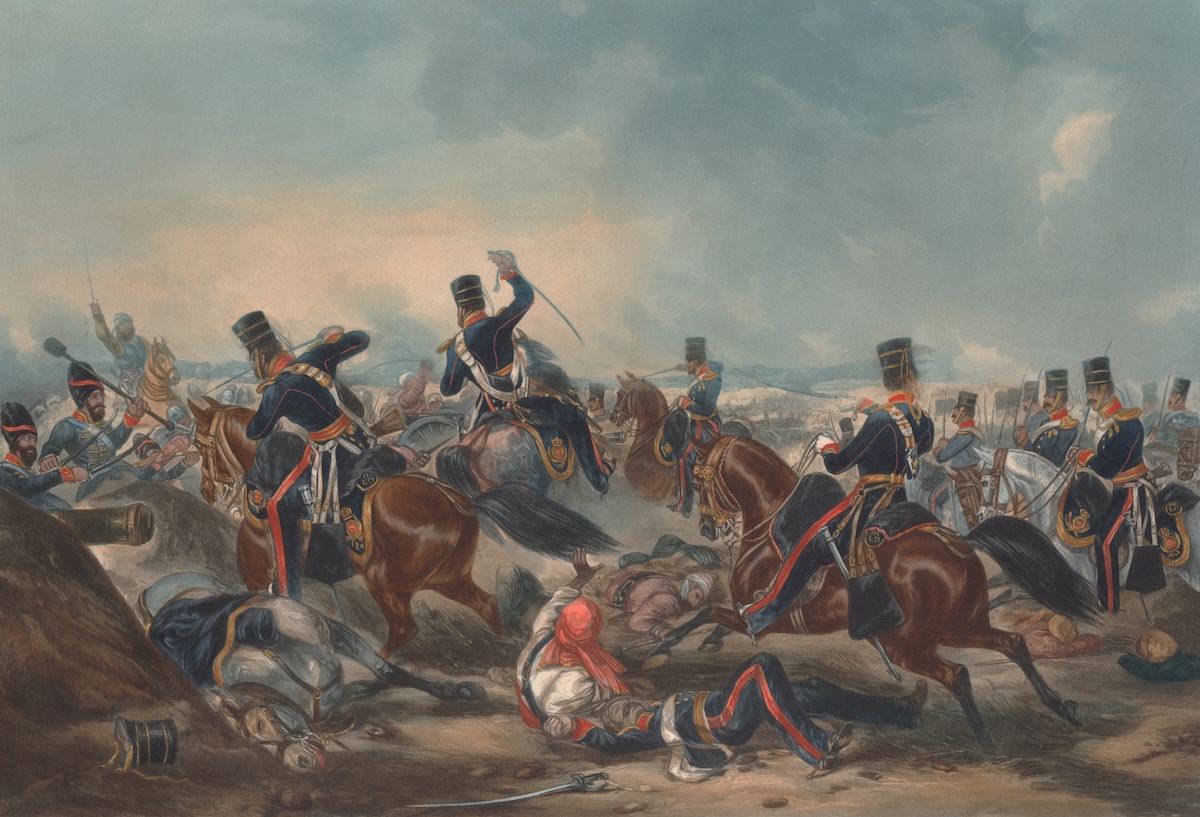Ferozeshah and the First Anglo-Sikh War: The Last Stand Against British Power
History Indian HistoryPosted by NewAdmin on 2025-02-13 08:50:49 |
Share: Facebook | Twitter | Whatsapp | Linkedin Visits: 52

The Sikh Empire's Defiance
In 1845, the British East India Company, having already established dominance across most of the Indian subcontinent, faced its greatest challenge in the Sikh Empire. The Battle of Ferozeshah, fought on December 21st and 22nd, was a significant turning point, where Sir Henry Hardinge, the British Governor-General of India, exclaimed, "One more such victory and we are undone." The Khalsa, the Sikh army, proved to be a formidable adversary, demonstrating military prowess that could stand toe-to-toe with the best of European troops. It was clear that the British could no longer rely solely on their superior technology and discipline but had to reckon with a force capable of matching them on the battlefield.
The Rise of Sikh Military Power
The Sikh Empire's rise to military prominence was nothing short of remarkable. In 1469, Guru Nanak, born in Talwandi (modern-day Nankana Sahib, Pakistan), established Sikhism with teachings that called for a belief in a single God and a focus on virtue, tolerance, and selflessness. As Guru Nanak’s followers grew, they formed a distinct community that was not only religious but also increasingly involved in defense and warfare. Over time, Sikhism transformed into a formidable force, and by the 18th century, the Sikhs had established a well-organized military with the Khalsa playing a central role in defending their lands and people.
Legacy of the Sikh Empire
The Sikhs’ military capabilities were not just a result of religious fervor but also of strategic leadership and organization. Under the leadership of Maharaja Ranjit Singh, the Sikh Empire reached its zenith, consolidating power in the Punjab region and resisting British expansion for decades. The Khalsa army’s disciplined ranks and high morale made it one of the most respected forces in the Indian subcontinent. This strength would come to the forefront during the First Anglo-Sikh War, where despite being outnumbered, the Sikhs gave the British a tough fight. The legacy of Sikh military prowess continues to be celebrated, with the Khalsa representing both spiritual strength and martial discipline.
Impact of the Anglo-Sikh Wars
The outcome of the First Anglo-Sikh War eventually led to the decline of Sikh power and the annexation of the Punjab by the British in 1849. However, the Sikh resistance against British imperialism remains a pivotal chapter in India’s history, showcasing the resilience of a people united by faith and defense of their land. The battle of Ferozeshah is remembered as a testament to the military might of the Sikhs, and their legacy continues to inspire generations.
Search
Categories
Recent News
- Pune Hit-and-Run Leaves BJP Spokesperson's Mother Critically Injured
- Ajit Pawar's Final Words: NCP Releases Emotional Audio
- Amit Shah's Final Push: Tackling Naxalism in Chhattisgarh
- CCTV Captures Shocking Drink Spiking Incident at London Nightclub
- Justice for Epstein Victims: Securing Privacy After Redaction Failures
- Unlocking the Secrets of India's Currency Notes
- Cortina's Village: A Winter Sports Haven
- Domestic Violence in Karnataka: A Shocking Act of Jealousy